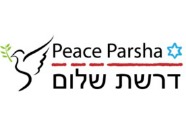by APN's Summer Intern, Hannah Ehlers

This week’s Torah portion (Korach, Numbers 16:1-18:32) concerns the dangers of complacency and the unfairness of acting at the expense of others, matters relevant to events in Israel today. Korach leads a rebellion against Moses and Aaron. 250 followers join Korach to challenge the leadership of Moses and Aaron, demanding priesthood in addition to the “service of the tabernacle of God” (Numbers 16:9) to which they, as Levites, are already assigned. These actions by Korach and his cohorts, and the lack of opposition by the greater community, ultimately result in immense suffering—the earth swallows Korach and his men and a deadly plague spreads through the Israelite community.
God initially sought to destroy the entire community as punishment for Korach and his followers’ sins. But Moses and Aaron pleaded for fairness: “O God, Source of the spirit of all flesh! When one man sins, will You be wrathful with the whole community?” (Numbers 16:22). God relented and instructed the prophets to tell the Israelites to “depart… from the tents of these wicked men, and touch nothing of theirs, lest you be swept away in all their sins” (Numbers 16:26). Besides the 250 men with Korach, the rest of the community is largely uninvolved in the conflict between the rebels and the prophets. God views the community’s indifference as betrayal and demands that they act.
Like Korach and his followers, Israeli settlers in the West Bank desire things that are not theirs and work to attain them at the expense of others—both at the expense of Palestinians and at the expense of Israel’s future. The settlements, especially as they continue to expand deeper into the West Bank, are the chief manifestation of the occupation and the unjustifiable suffering it imposes on the Palestinians. The settlements make the achievement of peace and a two-state solution increasingly difficult as viable borders become more difficult to draw, placing Israel’s future as a democratic and Jewish state in peril.
We do not need the clarion calls of the Jewish prophets or lessons from God to tell us that the settlers’ cause is wrong and a violation of long-cherished Jewish values and ethics— their actions speak for themselves. For example, so-called “Price Tag” attacks, in which some settlers and other Israeli extremists target Palestinians and damage or destroy mosques, cemeteries, and houses, has recently been mushrooming in the West Bank and Israel. These attacks reflect the hateful ideology that many settlers and others living in Israel share. It also reflects their growing tendency to act in a Korach-like manner, rebelling against the authority of the Israeli government and its law enforcement agencies. Moreover, settlers use physical violence against Palestinians, attacking civilians on their way to or from school, work, and home.
Korach created division among the Israelites, which threatened the entire community. But Moses and Aaron did not give up; they spoke to God on behalf of the Israelites. When the plague began, Aaron stood in the middle of the community “until the plague was checked” (Numbers 16:13). By speaking up in the face of a perceived injustice—believing it was unfair to punish all of the Israelites for Korach and his followers’ rebellion—Moses and Aaron saved the people of Israel.
The danger of silence and complacency in the face of injustice is a lesson we have learned repeatedly throughout history. As Rabbi Abraham Joshua Heschel has written, “too often the call goes forth, and history records our conscience as absent.” In explaining his reasons for his vocal opposition to American involvement in the Vietnam War, Heschel explained, “There is immense silent agony in the world, and the task of man is to be a voice for the plundered poor, to prevent the desecration of the soul and the violation of our dream of honesty. . . .morally speaking there is no limit to the concern one must feel for the suffering of human beings.”
The Jewish and international communities are growing increasingly divided over the Israeli-Palestinian conflict and Israeli government policies relating to the conflict. It may be tempting for some to throw up their hands and become complacent. But those of us who love Israel must not be silent; this includes speaking up and telling the truth when the Israeli government acts in ways that are counterproductive and self-defeating. As a sovereign state, which militarily occupies the West Bank and controls the Gaza Strip, Israel holds and exercises significantly more power than the Palestinians and therefore has disproportionate responsibility to end the conflict.
A majority of Israelis and Palestinians want a two-state solution and recognize its necessity. Israeli settlements in the West Bank are a substantial, ever-growing obstacle to Israel’s moral integrity, long-term security, and peace. Unlike the story of Korach, the earth is not going to open beneath our feet and a plague is not going to poison our veins. The process in which the occupation poisons Israel is slow and gradual, but no less dangerous. Israel’s future hangs in the balance and each of us has the power to affect it, to stand in the midst of chaos like Moses and Aaron, and demand justice for all who need it.
*AJH quote sources: “Religion in a Free Society” (A.J. Heschel, The Insecurity of Freedom: Essays on Human Existence, Farrar, Straus & Giroux, p.8) and “The Reasons for My Involvement in the Peace Movement” (A.J. Heschel, Moral Grandeur and Spiritual Audacity, ed. By Susannah Heschel; Farrar, Straus & Giroux, pp. 224-26)